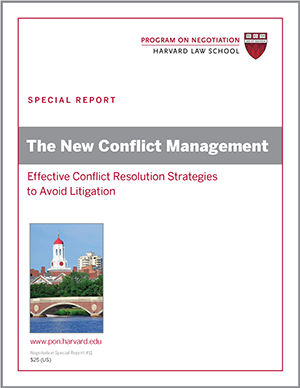As businesses increasingly branch out globally, they also face the possibility of broken contracts and strained relationships. Mediation can be an effective means of resolving disputes and getting business partners back on track, but do intercultural differences complicate the process? If so, how can disputants and mediators adjust?
Elizabeth D. Salmon of the University of Maryland and her colleagues examined this question in a recent laboratory study. The researchers paired American college students with students in Turkey and had the pairs engage online in a simulated dispute. Beforehand, the students individually answered questions designed to measure their “cultural intelligence,” or their capacity to function in culturally diverse situations, as well as the strength of their motivation to do so. The researchers also measured the students’ trust in their negotiation counterparts, their openness to mediation, and their willingness to make concessions in negotiation.
The intercultural pairs were given about half an hour to negotiate their disputes in real time via videoconference. The pairs, who played the role of tenants in an apartment complex who were at odds on certain issues, such as noise and patio use, were divided into three experimental groups. One group negotiated their dispute without the aid of a mediator. A second group had the help of a mediator who didn’t overtly direct the parties toward a particular outcome. A third group was aided by a directive mediator who used rewards and punishments to try to help the parties come to agreement. In the past, these different mediator styles have varied in effectiveness across different contexts.
In this study, a mediator’s directive tactics resulted in higher objective and subjective outcomes for both sides in mediations involving particularly challenging disputants (as measured by their scores on cultural intelligence, openness to mediation, and so on). By contrast, when disputants were more open to the mediation process and comfortable functioning across cultures, directive tactics, such as the threat of punishment, worsened both sides’ outcomes.
The results suggest that particularly thorny intercultural disputes may benefit from a directive mediator, whereas negotiators who are more open to the mediation process and comfortable with intercultural settings will do better with a more hands-off approach.
Resource: “Cultural Contingencies of Mediation: Effectiveness of Mediator Styles in Intercultural Disputes,” by Elizabeth D. Salmon, Michele J. Gelfand, Ayse Betül Çelik, Sarit Kraus, Jonathan Wilkenfeld, and Molly Inman. Journal of Organizational Behavior, 2013.




